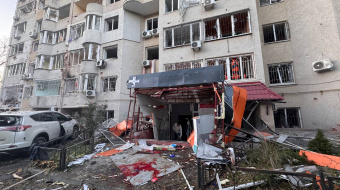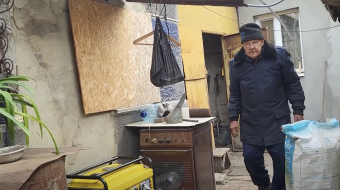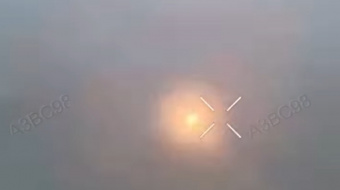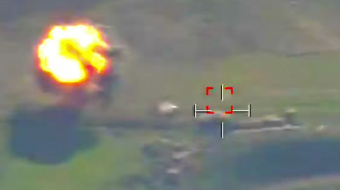"DPR customs": Rules, restrictions, advice. Part 3
"DPR customs": Rules, restrictions, advice. Part 3
Trade restrictions
“DPR customs”: Rules, restrictions, advice. Part 2
“DPR customs”: Rules, restrictions, advice. Part 1
There are customs duties on goods taken to “DPR” (there are also excise duties on tobacco and spirits, lubricants and petroleum products if they are taken to “DPR” as a lot). Rank-and-file citizens should remember that no duties are paid on the following goods when they are taken in or out and in the following cases:
- if the total price of goods is less than Є 1,000 or their weight is less than 50 kg;
- if there is not more than 1 liter of spirits, wine – 2 liters, beer – 5 liters, 200 cigarettes (200 grams) in their personal luggage;
- if goods are taken in or out temporarily in case they will be taken in / out back;
- if there is one musical instrument with the producer’s passport, receipt, or label proving that the instrument was made after 1950;
- if vehicles, motorcycles, bicycles have no historical value. “Historical value of vehicles” is understood as their belonging to outstanding personalities, politicians, or they are of exclusive models which were produced in small quantities;
- if jewelries are personal;
- if modern arts and craft works, souvenirs are bought in shops;
- on paintings, small sculptures, drawings, tapestry, applied arts works (pottery, china, faience, glass, metal, textile, etc.) made after 1950;
- on domestic and foreign household items made after 1950;
- on printed materials printed after 1945;
- on modern religious items of various confessions;
- on personal awards if citizens go to another country for good if there are respective papers.
To compare, we present the list of goods which are taken freely through Ukrainian checkpoints:
1) personal belongings
- personal hygiene goods and cosmetics in the quantity needed for one person during the trip to the uncontrolled territory or not more than 5 packs of each item per person if the person leaves the occupied zone;
- personal clothes, underwear, and footwear if it is evident that they have been used;
- used personal jewelry;
- one camera, one video camera with reasonable quantity of accessories;
- not more than two musical portable instruments;
- one tape recorder, or dictaphone, or CD-player (with a reasonable number of tapes, records, or CDs);
- one portable radio;
- not more than two (mobile) telephones, pagers;
- one portable TV set;
- not more than two personal computers with periphery, not more than three flash cards;
- not more than two calculators, electronic books;
- individual life supporting drugs;
- prams for babies: one per child; if a person goes without children – 1 item;
- one wheelchair per one disabled person;
- drugs not more than 5 packs of each (except the ones containing narcotics);
- watches, not more than two;
- toilet water – 0.5 liters and / or perfume – 100 grams;
- sports equipment: one bicycle, one fishing rod, one set of mountaineering equipment, one set of diving equipment, one set of skies, one set of tennis rackets, one (wind)surfing board, one set of golf equipment, or any other sport equipment to be used by one person;
2) goods (excluding excise one) the total price of which is not more than 10,000 UAH and the total weight is not more than 50 kg per person
3) food for personal consumption the total price of which is not more than 5,000 UAH and the total weight is not more than 50 kg per person;
4) alcohol and cigarettes per person (older than 18):
- 200 cigarettes, or 50 cigars, or 250 grams of tobacco, with the total weight not more than 250 grams;
- not more than 1 liter of spirits (22 % of alcohol and more), wine – 2 liters, beer – 5 liters;
5) when IDPs leave the occupied territory: used personal belongings, household items for new accommodation: furniture, utensils, bed linen, books, notebooks, stationary, carpets, pictures, lamps, tools, toys.
It is understandable that it is prohibited to take narcotics, poison, weapons, ammunition, etc. “Republican” instructions do not say anything about Ukrainian symbolical stuff (flags, souvenirs, goods of yellow and blue colours), but everyone understands that they are prohibited. People complain that “customers” are very scrupulous about drugs taken to the occupied territory. However, if the allowed volume is not exceeded and there are receipts, the “inspectors”, as a rule, allow taking them.
Larysa Lisnyak, 112 channel
New service "Explain Ukraine". This is a daily mailout of three articles which were written about the situation in the Donbas by Donbas journalists and translated into English. Honest vision of people who work in the field is unbiased and fresh which is crucial in the world which is full of desinformation and propaganda. We try to share this vision in out daily mailout. You can subscribe here.
















